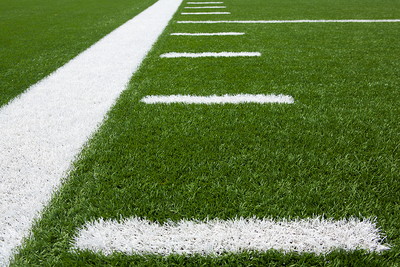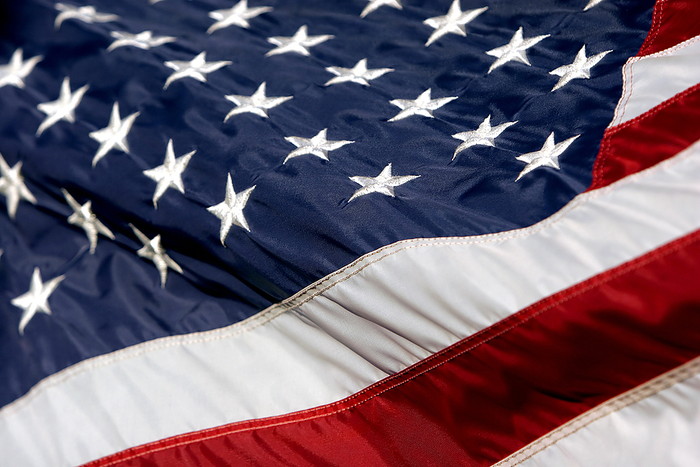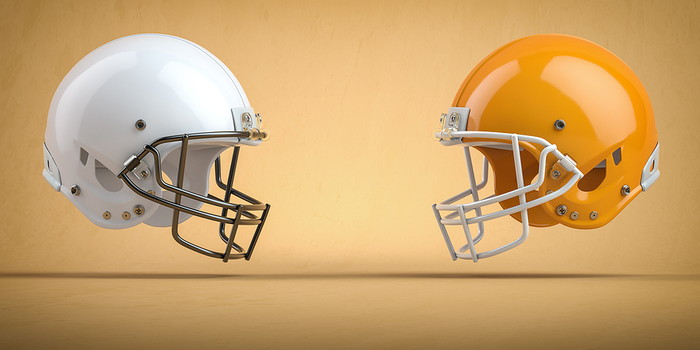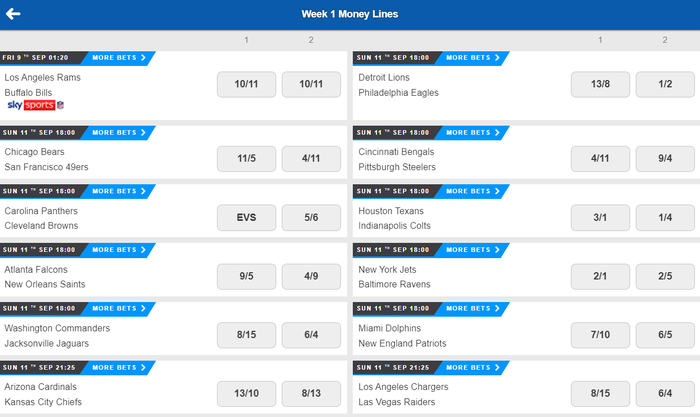 When seeing the term ‘spread betting’ for the first time it would be easy to think it refers to spreading, or rather hedging, your bets out over a number of different markets. While this can be a smart approach in some cases, in order to reduce liabilities, this is not what the spread refers to. Equally, some punters may automatically associate the term with a type of wagering that differs entirely from fixed odds betting and instead essentially sees punters decide whether an outcome will be higher or lower than a given value (the spread).
When seeing the term ‘spread betting’ for the first time it would be easy to think it refers to spreading, or rather hedging, your bets out over a number of different markets. While this can be a smart approach in some cases, in order to reduce liabilities, this is not what the spread refers to. Equally, some punters may automatically associate the term with a type of wagering that differs entirely from fixed odds betting and instead essentially sees punters decide whether an outcome will be higher or lower than a given value (the spread).
Spread betting as we are discussing it here, bears some resemblance to the latter definition of spread betting but is still within the remit of “normal” fixed odds wagering. In fact, it is similar to what many of us better understand as ‘handicap’ betting but there are a couple of small differences. As well as explaining exactly what ‘the spread’ entails, we will look at how it relates specifically to American Football betting.
Spread Betting Explained

The idea of spread betting is to effectively create an even playing field, rather than leaving some matches with one clear favourite and one underdog. This is achieved by applying a points reduction to the favourite and giving all these subtracted points to the underdog. In cases where teams are fairly evenly matched, the handicap applied will be small. Where there is a larger difference in perceived ability, the spread will reflect this by being much larger.

What this means is that you are effectively betting on the margin of victory. Using the example above, if your place your money on the Baltimore Ravens, they would need to win by six points or more, because they have 5.5 subtracted from their actual total. With a bet on the New York Jets though, they only need to avoid defeat by less than a six-point margin thanks to their +5.5 spread.
So, if the final score ends up 23 – 20 to the Ravens, backing the NY Jets in the spread market would be the winning spread bet. As you backed them with a +5.5 advantage, this would mean the final score (for the purpose of the bet only) is 23-25.5 to the visitors.
Why Spread Betting?

Spread betting has become such a huge market on American sports betting partly because it was in America where it was first was introduced. The first to come up with the idea was Charles K McNeil, a Connecticut-based maths teacher who later went on to become a bookmaker in Chicago during the 1940s. Its popularity was helped by the fact that it is can be used across other popular American sports, in particular basketball.
Betting on the spread is something bookmakers are fond of as it often enables them to ‘balance the book’. If they are offering two outcomes, both at around 10/11, and both markets attract a similar amount of money (which is far from unusual) then a profit is guaranteed regardless of the outcome of the match. Imagine if £10,500 was wagered on the Miami Dolphins at -2.5 and £10,000 was wagered on the New England Patriots at +2.5.

If the Miami Dolphins win, the bookie will pay out £9,545 (£10,500 @ 10/11) while taking in £10,000 in losing bets, resulting in a positive outcome worth £455 to them. If the Patriots win however, the bookie will pay out £9,090 (£10,000 @ 10/11) while taking in £10,500 in losing bets, resulting in them clearing £1,410.
Should it happen that the punters are backing the Dolphins at -2.5 much more than they are the Patriots at +2.5, bookies can easily adjust the spread to help stop the imbalance. Depending on the disparity it is perfectly feasible that the spread could change to Dolphins -4.5 and the Patriots +4.5. By making the Patriots bet more appealing, and Dolphins less appealing, the bookie will hope that the majority of future bets end up on the Patriots.
There will be times when changes to the margin of victory fails to balance the books, meaning bookies find themselves in a situation where they will lose out should one team in particular win. Although some losses are unavoidable, in the long-run bookies are almost guaranteed to come out on top long term thanks to the in-built house edge in the odds.
What Happens If There Is A Draw?

In the example we gave earlier, there was a 5.5 spread, and the 0.5 element made it impossible for there to be a tied game. If Baltimore won the actual game by six points they would win in terms of the market by 0.5, whilst if they only won by five points they would lose by that same hypothetical half-point margin. You will often see though that in the spread betting market, the spread includes a whole number, creating the possibility of a tie.

Now, if these two teams were to actually end up all square after the fourth-quarter, say with the score 24-24, the game will head to overtime. Unlike in (English) football, where extra time is not included for most markets, when it comes to US sports, it often is. This is usually enough to produce an outright winner, although there are cases in which the teams remain level after the overtime period. Of course, there will be no overtime played just because there is a tie in the spread betting though. Should the Indianapolis Colts beat the Houston Texans by a score of 36-28, this will be the end of it – sadly the teams will not trot out for an extra period of play because of Dave from Essex’s £10 bet on the spread.
What does this mean for your bet though? Well, in the world of spread betting this is what is known as a ‘push’. Simply put, what happens is that the bets are not classed as a winner or loser, and all stakes are simply returned to the customers. This means the bookie ends up with absolutely zero take from the entire market so it is far from an ideal outcome for them, though of course they do not actually lose money either. Pushes do not happen all that often though which is why bookies are happy to offer whole number spreads, rather than always opting for 0.5 figures.
Overtime and Spread Betting
![]() As said, for those of your familiar with betting on football (soccer) you will know that most bets apply to the result after 90 minutes. This means they are settled before any 30-minute period of extra-time so whatever happens at this late stage in the game is irrelevant to your bet. American football works differently however as overtime is included for any spread bets, and many other markets, as standard. This can help give you a potential reprieve should your bet appear to be on the brink of failure.
As said, for those of your familiar with betting on football (soccer) you will know that most bets apply to the result after 90 minutes. This means they are settled before any 30-minute period of extra-time so whatever happens at this late stage in the game is irrelevant to your bet. American football works differently however as overtime is included for any spread bets, and many other markets, as standard. This can help give you a potential reprieve should your bet appear to be on the brink of failure.
Going back to our first example, say you backed the Ravens with a -5.5 spread at odds of 10/11 and courtesy of a late field goal, they end up tying the game 10 – 10. This keeps your bet alive because the market is not settled yet, only once overtime is complete will you know if you have backed a winner or loser. Should the Ravens register a touchdown in overtime and win the game 16-10, your -5.5 spread bet would indeed be a winner.
Due to this policy on overtime, you can occasionally end up with situations late on in games where you are urging the team you bet on to concede. This can happen if the three-point advantage they currently have is insufficient for your bet on the spread, so you need the match to go to overtime and hope they register a touchdown. If you backed a team with a -6.5 spread or greater though, overtime cannot spare you. Current rules mean that a team is unable to register a lead greater than six points in overtime (6-0 usually, although 9-3 is theoretically possibly).
As for how often matches head into overtime. Between 2017 and the end of the 2021 season, 69 regular season contests went to overtime and 64 of them produced an outright winner, as just five ended up as a draw. This is largely in keeping with the previous five-year period (2012-2016) that used the sudden-death overtime system. In this time frame there were 83 regular season matches that ended level after the fourth quarter and only five finished all-square after overtime.
What Odds Are Available With Spread Betting?
With American Football spread betting, bookies may offer slightly different margins of victory in the spread market. Differences are quite common but usually very small. Still, it can be worth having a quick look around as you will be kicking yourself if your bets end up failing because of a one-point difference.
| Bookmaker | Houston Texans | Indianapolis Colts |
|---|---|---|
| Site A | +8.5 @ 10/11 | -8.5 @10/11 |
| Site B | +8 @ 10/11 | -8 @ 10/11 |
| Site C | +7.5 @ 10/11 | -7.5 @10/11 |
In the example above, the first bookie is offering an 8.5 spread, the second is offering a smaller 8.0 spread, with the third an even smaller spread at 7.5. If you fancy the Texans, the first is the best option, while you are slightly more likely to win with the second and third bookies if backing the Colts. In all three instances, as with the one we showed you even earlier, the odds on the spread were 10/11 (or -110 using the American system). This gives a total implied probability of 104.77% (52.38% x 2) giving a bookmaker a relatively slender 4.77% margin.
When looking at a range of bookmaker odds in this market, having a pair of 10/11 selections is the most common but some bookies operate using a bigger margin. At 9/10, the house edge stands at 5.26% while odds of 5/6 means there is a hefty 9.11% edge. So, our advice would be if you are placing your spread bets at 5/6 or -120 using the American odds system, you should probably find another bookie.
Alternative Spreads
The main spread normally provides you with two options at the same odds, though you may sometimes see one side offered at a slightly different price. However, you are not constrained by sticking with the margin of victory provided here though. If you believe, for example, a team will easily overcome their points deduction and win by a much larger margin, this is something you can bet on. Not all bookies offer alternative spread bets but it should not be too hard to find.
In a clash between the San Francisco 49ers and the Chicago Bears, the standard spread was 6.5 points, both the + and – points option available at odds of 10/11. If you wanted a more likely bet, at a reduced price, alternative points spreads provide you with this option. Similarly, you can increase your risk but also increase the potential payout by heading for a larger margin of victory (or smaller margin of defeat).
| San Francisco 49ers | Chicago Bears |
|---|---|
| +7.5 @ 1/14 | +7.5 @ 20/29 |
| +5.5 @ 2/15 | +5.5 + 21/20 |
| +3.5 @ 1/6 | +3.5 @ 5/4 |
| +1.5 @ 20/73 | +1.5 @ 21/20 |
| -1.5 @ 10/27 | -1.5 @ 51/20 |
| -3.5 @ 4/7 | -3.5 @ 4/1 |
| -5.5 @ 5/7 | -5.5 @ 19/4 |
| -7.5 @ 21/20 | -7.5 @ 8/1 |
| -9.5 @ 13/10 | -9.5 @ 19/2 |
| -11.5 @ 13/8 | -11.5 @ 12/1 |
| -13.5 @ 2/1 | -13.5 @ 19/1 |
| -15.5 @ 5/2 | -15.5 (n/a) |
| -17.5 at 16/5 | -17.5 (n/a) |
The same premise applies here as when betting on the main spread market. If you back the 49ers with a -11.5 disadvantage, they would need to win the game by a minimum of 12 points. You can combine these alternative spread bets from different matches to create a weekend accumulator offering the potential for a very large payout.
Evenly Matched Teams

The spread helps create balance between two unbalanced teams and regularly this is needed as American football teams are of ranging abilities. You will find the occasional match however, where there is nothing to separate two teams in the betting. Take the opening fixture of the 2022 NFL season: for this, at least within the early betting, bookies were consistently offering the same price for both the Bills and the Rams.
When this situation occurs, we recommend checking the spread betting options first as you might end up with a very slightly better bet. This is because some bookies may give the same odds for a spread bet as they will a moneyline bet.
| Market | Odds |
|---|---|
| Buffalo Bills (Money Line) | 9/10 |
| Los Angeles Rams (Money Line) | 9/10 |
| Buffalo Bills -1 Spread | 9/10 |
| Los Angeles Rams +1 Spread | 9/10 |
If you are wanting to back the Rams for this clash, there is no reason not to pick them as a handicap (spread) option rather in the moneyline. The reason for this is that should the game end up as a tie, with the moneyline bet you will only receive your stake back but your handicap bet would be a winner. Now, the NFL only averages one draw per season so it is unlikely you will benefit from this but it is worth doing if there is no added inconvenience.
What Is The Moneyline?

For those unaccustomed to betting on sports that are primarily popular in the US, the concept of the moneyline may not be one you are familiar with. When it comes to American football, not to mention ice hockey, baseball and basketball, the moneyline is essentially what we would normally call the match odds in the UK.
This is a simple bet on who will win the contest. The interesting thing though, and why the spread is so crucial in US sports, is that the moneyline is not typically a big deal for US fans and punters. The spread is their go-to market, whereas UK fans betting on a Premier League game are far more likely to look to the match odds rather than the handicap.
This is perhaps largely cultural and if you so choose, you could simply ignore the spread and place bets on the moneyline. However, if you intend to follow the NFL, or another American sport closely, you will regularly hear pundits and commentators talking about the spread, so it at least pays to understand the concept.
